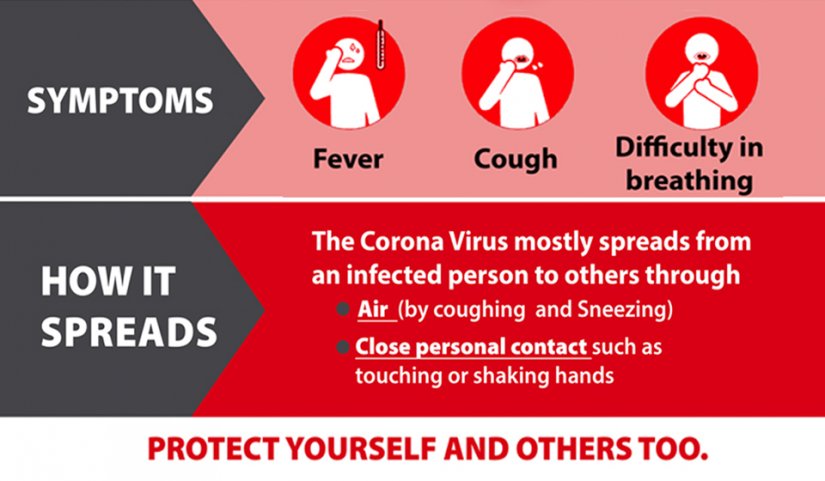Sneezing is enjoyed in Ghana. It has always been welcomed with “bless you” and other positive responses.

The Greeks and Romans take sneezing for wellness and express good wishes with phrases “live long” or ”May Jupiter bless you”.
Celsius of Rome suggests that sneezing is a sign of recovery from an illness. Aristotle believes sneezing is a Holy sign since it arises from the lungs, which are the principle and most divine parts of the human body. But the outbreak of Coronavirus (COVID-19) pandemic appears to have changed the narratives.
Now one is stigmatized and shun because it is said to be a mode of spreading COVID-19. One dares not sneeze in public these days. Not even when the nose and mouth are well covered. It is a taboo. You will attract all the bad looks and curses strong enough to make you ask yourself difficult questions.
The story of middle-aged Madam Comfort Anokye, an asthmatic patient, makes me feel bad. She was nearly beaten by people around her when she sneezed after an allergic attack. She said a few times, people around her deserted her and never got near because she sneezed.
How does sneezing occur?
Dr Clarence Basogloyele, a Medical Officer, at the Greater Accra Regional Hospital explains that sneezing process occurs in phases – nasal or sensitive phase and the respiratory phase. He says nerves in the airways are stimulated by chemicals, organisms, and viruses such as SARS COVID-19. The stimulation in the upper airways stimulates these nerve senses until a critical threshold is reached, which sends the person into the second phase, which is the respiratory phase.
“This phase co-ordinates respiratory muscles with the eyes and mouth. An inspiration against a closed glottis is followed by a rapid contraction for a powerful expiration though the nostrils and partly opened mouth. This is aimed at clearing the airway of its irritants,” he said.
Dr Basogloyele, says the first phase is that irritating nasal itch. The final stage kicks in when it reaches that critical threshold, which is that relieving sneeze. The numbers of particles expelled per sneeze are estimated to be about 40,000 particles ranging between 0.5-5micrometers in diameter.
“It is as a result of the particles exhaled that is why people need to cover their nose when sneezing. If an affected person exhales these thousand particles without a cover, people close less than a metre are likely to inhale the infected particles,” he noted.
COVID-19 Spreads
The WHO, Ghana Health Service, and health experts including; Dr Rajiv Dhand, from the University of Tennessee, and Dr Jie Li, from Rush University in Chicago, agree that human-to-human transmission of the virus, often occurs when someone comes into contact with infected person’s secretions.
For anyone who grows anxious at the sound of a sneeze or a cough these days, Lydia Bourouiba’s a fluid dynamics scientist at MIT offers little comfort. While sneezing is not one of the common symptoms of COVID-19, an asymptomatic person with seasonal allergies or a random sneeze could still spread the germ.
Recommendation
Ms Ewurabena Dadzie, the Health Technical Manager of World Vision Ghana in an interview says it is wrong to stigmatize people who sneeze because it is not the case that every sneeze contains COVID-19 virus.
“Sneezing is an involuntary action and relieves people from nasal congestion. It is wrong to label everyone who sneezes as carrying COVID-19 virus, rather individuals that have allergic condition must be encouraged to cover their nose as a preventive measure,” she explained.
As part of WVG COVID-19 response, she said a training manual was developed to train officers and partners to educate the populace.
According to her, it has a component that tackles issues relating to stigmatizing people like Madam Anokye who has allergy and susceptible to sneezing.
Ms Dadzie describes stigmatization as dangerous and can destroy communities and relationships. “It drives people to hide the illness to avoid discrimination and prevent them from seeking health care immediately. Discourage them from adopting healthy behaviours,” she added. It is not clear yet if, sneezing would regain its glorious and enviable place around the world when the COVID-19 dust settles.
Till then, all and sundry must observe strictly, the anti-COVID-19 safety protocols including; covering of nose and mouth when sneezing and discard the tissue afterward.
Wash your hands regularly with soap under running water and sanitize with an alcohol-based sanitizer as your contribution towards reducing the spread.
SOURCE
GNA
